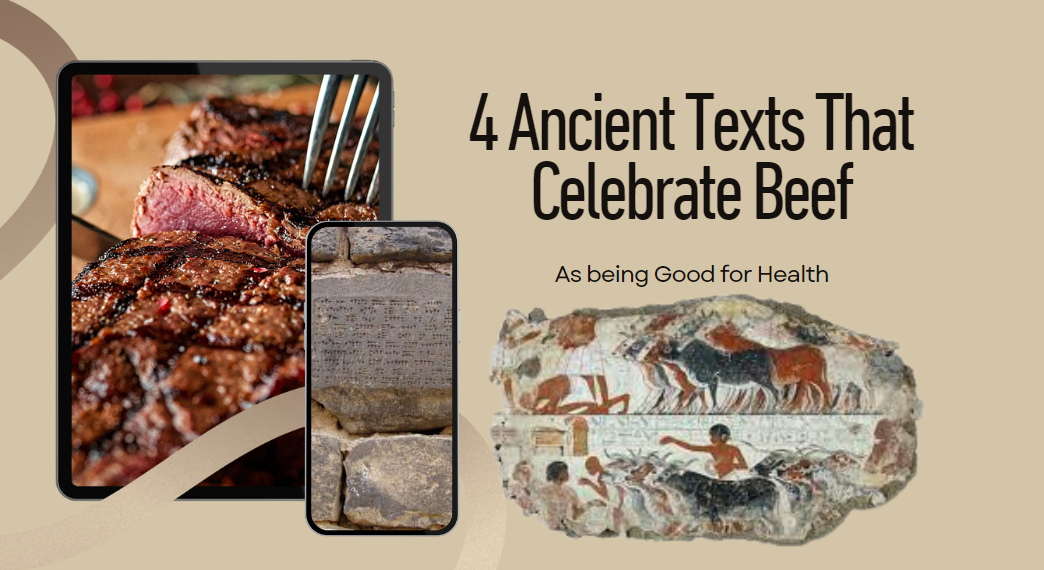1. Ayurvedic Texts - The Ayurvedic texts originate from ancient India and are believed to have been written over a span of centuries, with some texts dating back thousands of years. The earliest Ayurvedic texts, such as the Charaka Samhita and the Sushruta Samhita, are estimated to have been composed between 600 BCE and 200 CE. Ancient Indian texts such as the Charaka Samhita and Sushruta Samhita advocate for the consumption of meat in moderation as part of a balanced diet to maintain health and strength.
· Charaka Samhita (which is stated to be the oldest Ayurvedic texts) says the following: “For the promotion and nourishment of the body, no other food item is better than meat.”
· Bhava Prakash (another Ayurvedic scripture) says the following: “The meat of freshly killed animals is like Amrit” (the ultimate life-giving fluid that sustains the divine).
· Bagh Bhatt: “Nothing equals meat for the promotion of health and substance of the body.”
· Shatapatha Brahmana: “Meat is the best kind of food.”
2. Edwin Smith Papyrus (Ancient Egyptian Medical Papyri) is a medical text written over 3,600 years ago describing Egyptian healing. According to Greek historian Homer “In Egypt, the men were most skilled in medicine than any man kind.” Ancient Egyptians applied Raw meat to wounds. After meat has been applied, they often follow this treatment by using honey and oil. This is because applying raw meat to open cuts helps stop/prevent further bleeding. Egyptians considered a source of essential nutrients and was often recommended for individuals, especially children and the sick, as a food that provided strength and sustenance.
3. De Medicina" (On Medicine) by Aulus Cornelius Celsus- "De Medicina" (On Medicine) by Aulus Cornelius Celsus was written in the 1st century CE, specifically during the reign of the Roman Emperor Tiberius (reigned 14–37 CE). Celsus was a Roman encyclopedist, philosopher, and writer known for his comprehensive work on medicine, which encompassed various aspects of medical knowledge and practices of his time.
· In "De Medicina," Celsus emphasizes the importance of a balanced diet that includes meat, among other food groups, for maintaining good health. He discusses the nutritional value of different meats and their potential benefits for the body, highlighting their role in providing essential nutrients and promoting overall well-being.
4. The "Yellow Emperor's Inner Canon" (Huangdi Neijing) is an ancient Chinese medical text that is believed to have been compiled over a period of centuries, with its origins dating back to around the 3rd century BCE during the Warring States period of China. The exact dates of its compilation are not precisely known, but it is traditionally attributed to the mythical Yellow Emperor, Huangdi. The text consists of two parts: the "Suwen" (Basic Questions) and the "Lingshu" (Spiritual Pivot), and it forms the foundation of traditional Chinese medicine. The text mentions the benefits of consuming certain meats in moderation to balance the body's energies and maintain health.
These ancient texts reflect the beliefs and practices of their respective cultures regarding the role of meat in promoting health and vitality.
It is interesting to note that different and diverse cultures around the world all share this in common- that meat is good for health.
If you're looking for a quality source for local beef, please check out our premium beef boxes

